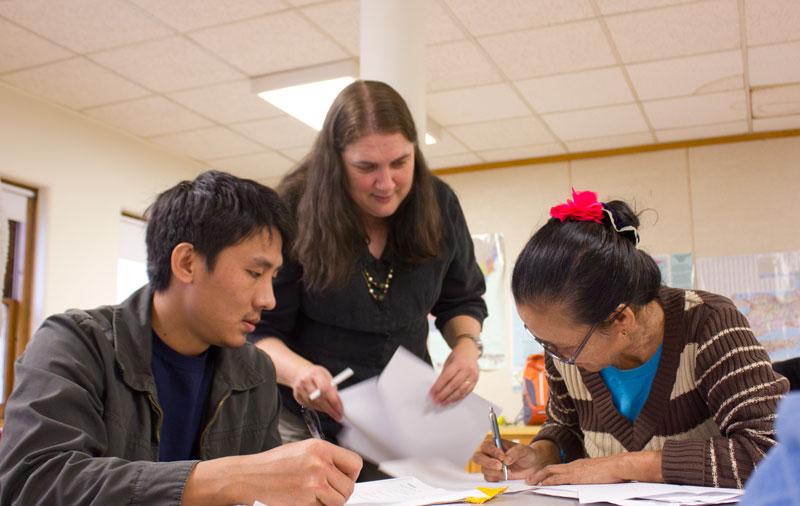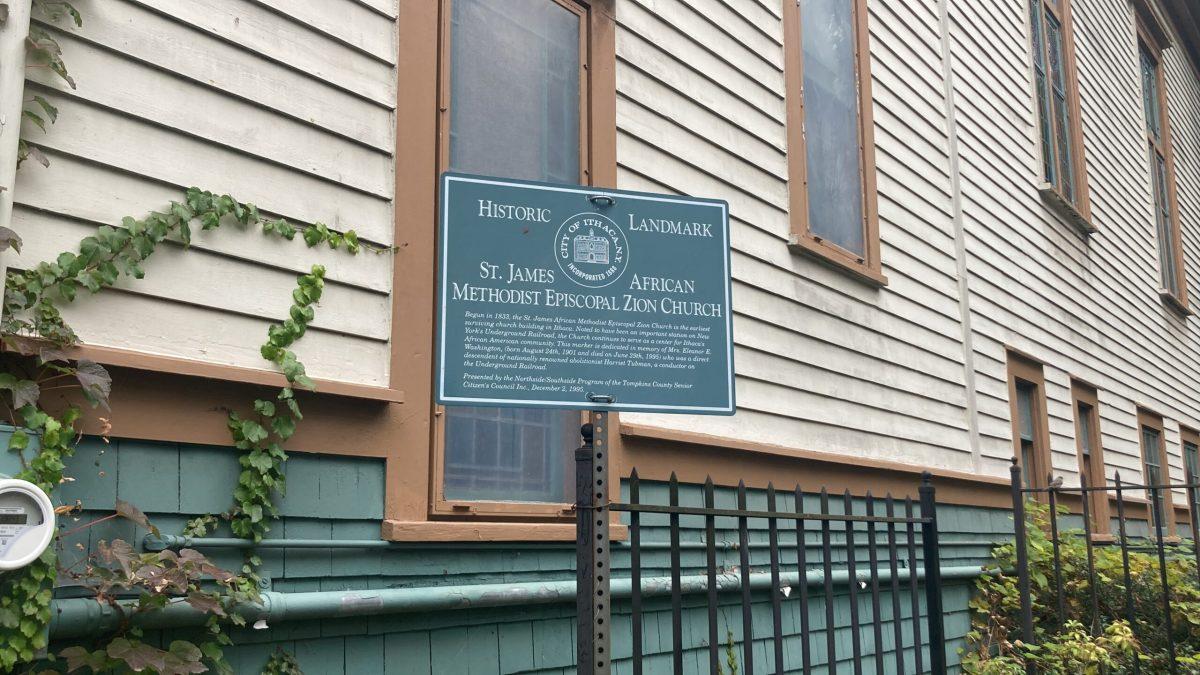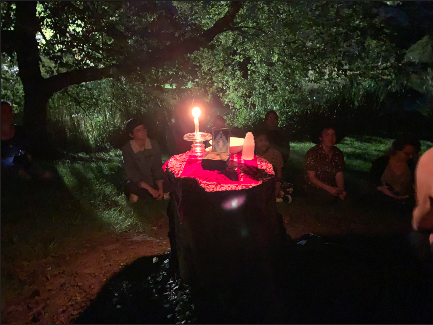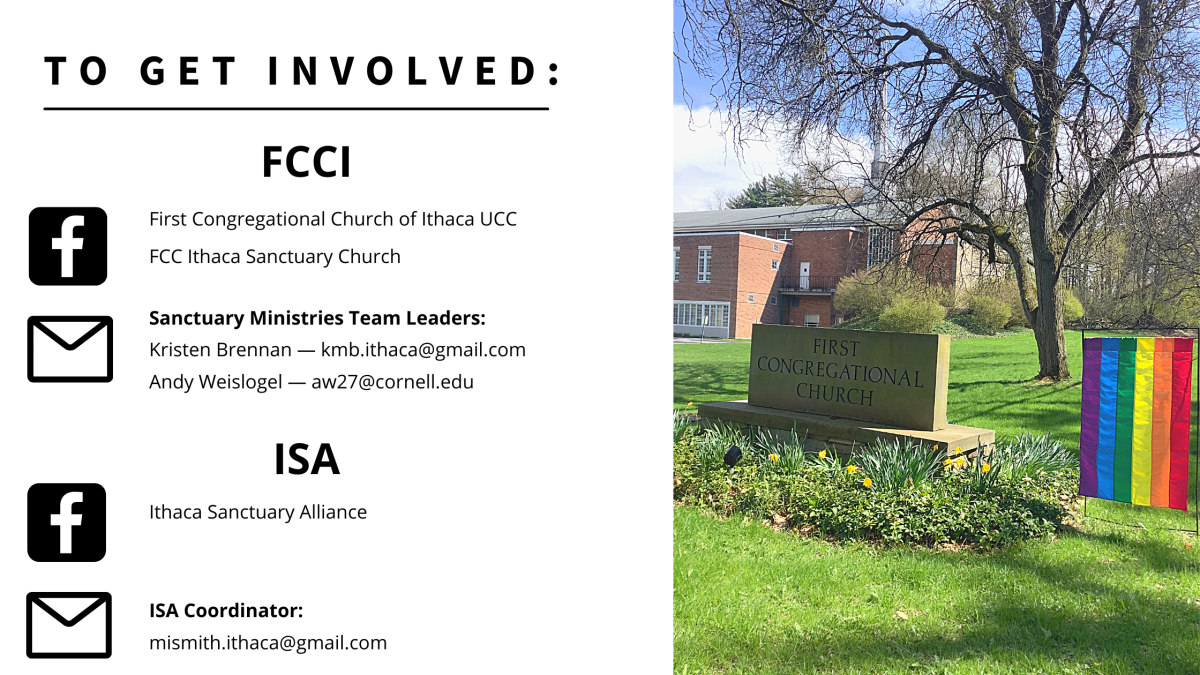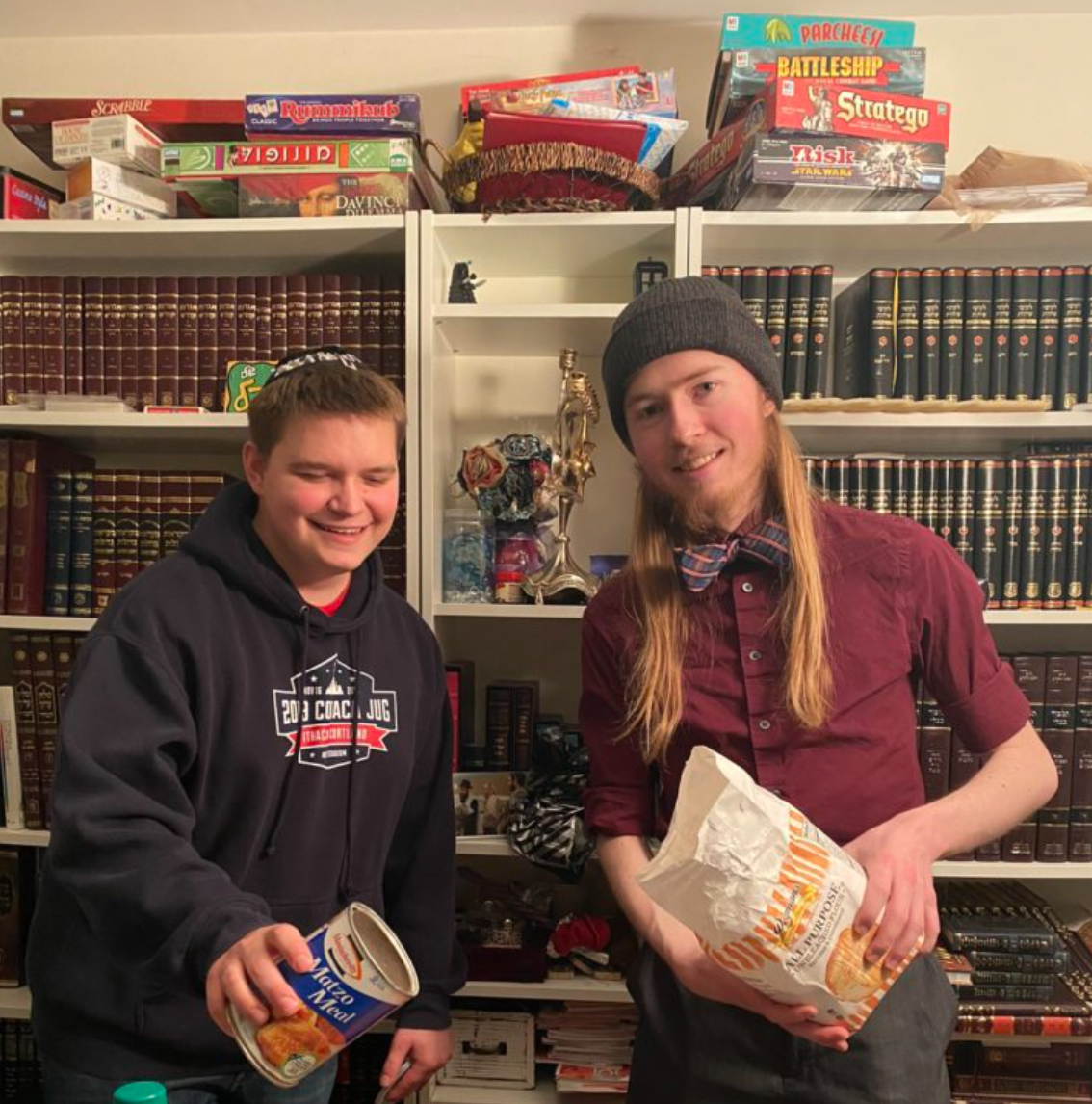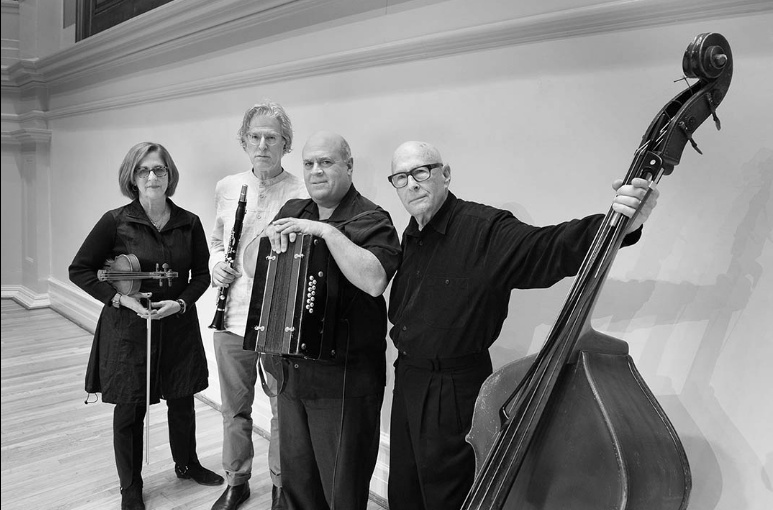Baital Hsa Moo greets staff members as if they were family, opening his arms for hugs and catching up on recent news.
The 25-year-old has returned to the third floor of the First Presbyterian Church of Ithaca, where he took English classes for over two years.
The space—which the church rents out to the local Board of Cooperative Educational Services (BOCES)—hosts language classes for migrants and refugees like Hsa Moo and his mother, Tha Nay Paw.
The family is part of a large influx of Burmese that have come to the United States after years of political strife and violence in their home country.
1,074 refugees from Myanmar resettled in New York State in 2012, according to government statistics. The Ithaca/Syracuse area alone houses at least 3,000 Burmese.
Hsa Moo and Paw are Karen, a small ethnic group within Burmese. The two spent more than 12 years in a refugee camp in Thailand before they were sent to New York as part of a United Nations program.
Many of the families come to the U.S. with no contacts, little money and often speak no English.
Organizations like the American Civic Association (ACA) in Binghamton set up families with sponsors who help the refugees with everyday tasks like paperwork and doctors appointments.
Janet Morgan, a retired faculty member at Tompkins County Community College, has sponsored a Burmese family for the past three years. Morgan said that although the transition for many refugees can be difficult, it is also fulfilling.
“It’s been very rewarding to see them settle in,” she said. “Just to know that here are folks that for ten years were in a refugee camp in Thailand and had the mere basics in life, to see them relax and settle into life here has been great.”
Chief among these challenges is the language barrier, Morgan said.
“In Karen there are no final consonants on words, so even when they’re speaking English and they know the English words and grammatical construction, it’s hard to understand them because they leave off half of each word,” she said.
For the past 23 years the church has offered services to local refugee populations, including hosting ESL classes offered by BOCES.
Acting Pastor Rev. Alice Tewell, who is also on the board of the Karen-Burmese American Association, said that these services are an important part of the support network in place for these groups.
“We’re able to provide most assistance beyond DSS (Department of Social Services) payments that they need,” she said, “Extra tutoring or sports or arts lessons or help paying dentist appointments. They don’t have a lot of extra money.”
The reason Ithaca has such a large refugee population is in part because of these services, Tewell said. According to the ACA, most of the Burmese in Ithaca are considered “reunification” cases, where refugees already have relatives or friends in the area.
“[The ACA] tends to settle people where there is the most assistance,” Tewell said. “So if there’s already someone from the community they will settle them there because there’s already a network set up.”
At the church Hsa Moo tells the staff about his job at The Statler hotel and his classes that he takes as a part-time student at TC3.
He is working long hours, bikes everywhere because he can’t afford a car, but as of now things are good, he says. All the way good.

